10 Best Herbal Decoctions For Anxiety
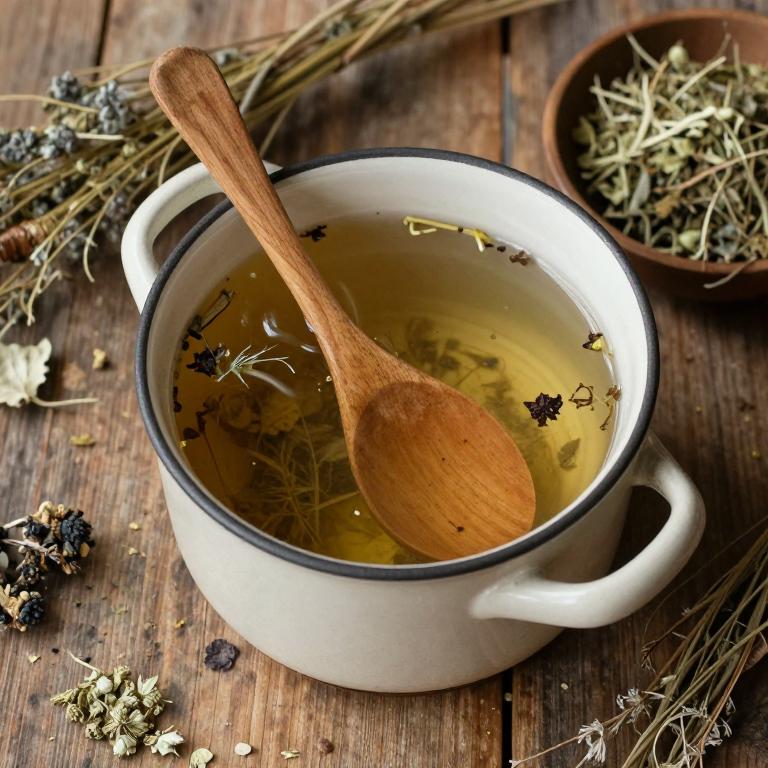
Herbal decoctions have long been used in traditional medicine to alleviate symptoms of anxiety, offering a natural and holistic approach to mental wellness.
These decoctions typically involve simmering plant-based ingredients such as valerian root, passionflower, and lemon balm in water to extract their calming properties. The gentle action of these herbs can help reduce nervous tension and promote relaxation without the side effects often associated with pharmaceutical treatments. Many people find herbal decoctions to be a soothing ritual that supports emotional balance and stress relief.
However, it is important to consult with a healthcare professional before using these remedies, especially if you are taking other medications or have underlying health conditions.
Table of Contents
- 1. Valerian (Valeriana officinalis)
- 2. Maypop (Passiflora incarnata)
- 3. Licorice (Glycyrrhiza glabra)
- 4. Yarrow (Achillea millefolium)
- 5. Chamomile (Matricaria chamomilla)
- 6. Kava (Piper methysticum)
- 7. Chaste tree (Vitex agnus-castus)
- 8. St. john's wort (Hypericum perforatum)
- 9. Echinacea (Echinacea purpurea)
- 10. Lemon balm (Melissa officinalis)
1. Valerian (Valeriana officinalis)

Valeriana officinalis, commonly known as valerian, is a traditional herbal remedy widely used for its calming effects on the nervous system.
Herbal decoctions of valerian root are prepared by simmering the dried root in water, allowing the active compounds such as valerenic acid and valepotriates to be extracted. These compounds are believed to interact with the brain's GABA receptors, promoting relaxation and reducing anxiety symptoms. While some studies suggest valerian may be effective for mild anxiety, more research is needed to confirm its efficacy and optimal dosage.
As with any herbal remedy, it is important to consult with a healthcare professional before use, especially for individuals taking other medications.
2. Maypop (Passiflora incarnata)
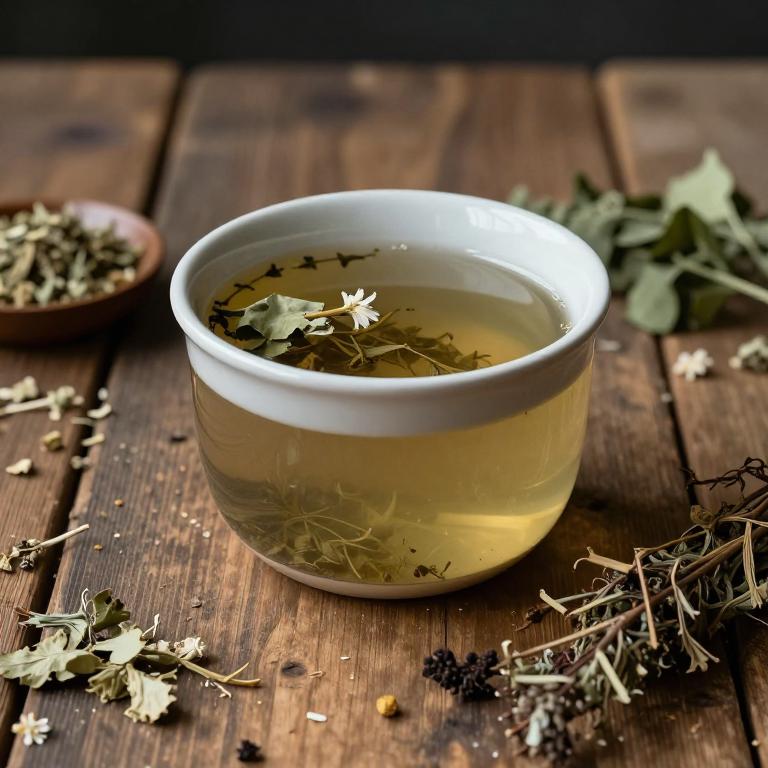
Passiflora incarnata, commonly known as purple passionflower, is a herbal remedy traditionally used for its calming effects on the nervous system.
Its herbal decoctions are prepared by simmering the dried leaves and flowers in water, creating a soothing tea that is often consumed to alleviate symptoms of anxiety. Studies suggest that passiflora contains compounds such as flavonoids and alkaloids, which may contribute to its anxiolytic properties by influencing neurotransmitter activity. Many individuals find relief from mild to moderate anxiety through regular consumption of passionflower decoctions, often reporting reduced stress and improved sleep quality.
However, it is important to consult with a healthcare professional before using this herb, especially for those on medication or with underlying health conditions.
3. Licorice (Glycyrrhiza glabra)

Glycyrrhiza glabra, commonly known as licorice root, has been traditionally used in herbal medicine for its potential anxiolytic properties.
Herbal decoctions made from Glycyrrhiza glabra are prepared by simmering the dried root in water, allowing the active compounds such as glycyrrhizin and flavonoids to be extracted. These compounds may exert a calming effect by modulating the body's stress response and influencing neurotransmitter activity. Studies suggest that licorice root decoctions may help reduce symptoms of anxiety by supporting adrenal function and reducing cortisol levels.
However, long-term use of licorice root should be monitored due to its potential side effects, including hypertension and electrolyte imbalances.
4. Yarrow (Achillea millefolium)

Achillea millefolium, commonly known as yarrow, has been traditionally used for its calming properties and is often prepared as a herbal decoction to support emotional well-being.
The decoction is made by simmering the dried leaves and flowers of the plant in water, allowing the active compounds such as flavonoids and volatile oils to be extracted. Studies suggest that these compounds may help reduce symptoms of anxiety by promoting relaxation and balancing the nervous system. While not a substitute for professional mental health care, yarrow decoctions are sometimes used as a complementary therapy in holistic approaches to anxiety management.
It is important to consult with a healthcare provider before using yarrow, as it may interact with certain medications or have side effects in some individuals.
5. Chamomile (Matricaria chamomilla)
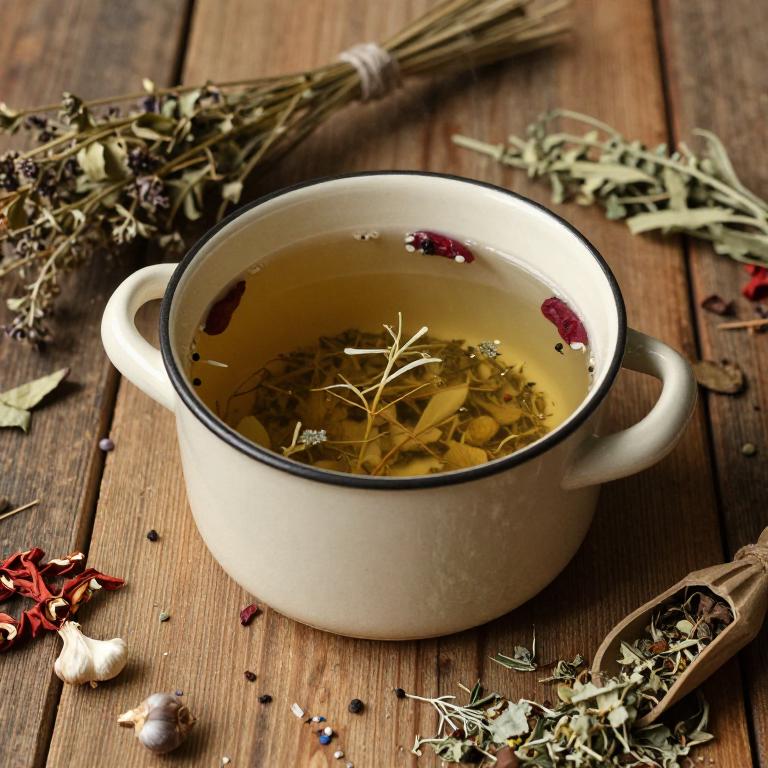
Matricaria chamomilla, commonly known as German chamomile, has been traditionally used for its calming properties, and its herbal decoctions are widely recognized for their potential to alleviate anxiety.
The active compounds in chamomile, such as apigenin and flavonoids, are believed to interact with brain receptors that promote relaxation and reduce stress. Studies suggest that regular consumption of chamomile tea or decoctions may help lower cortisol levels and improve mood, making it a natural remedy for mild to moderate anxiety. However, it is important to consult a healthcare provider before use, especially for individuals taking medications or with known allergies.
While not a substitute for professional treatment, chamomile decoctions can be a complementary therapy to support emotional well-being.
6. Kava (Piper methysticum)
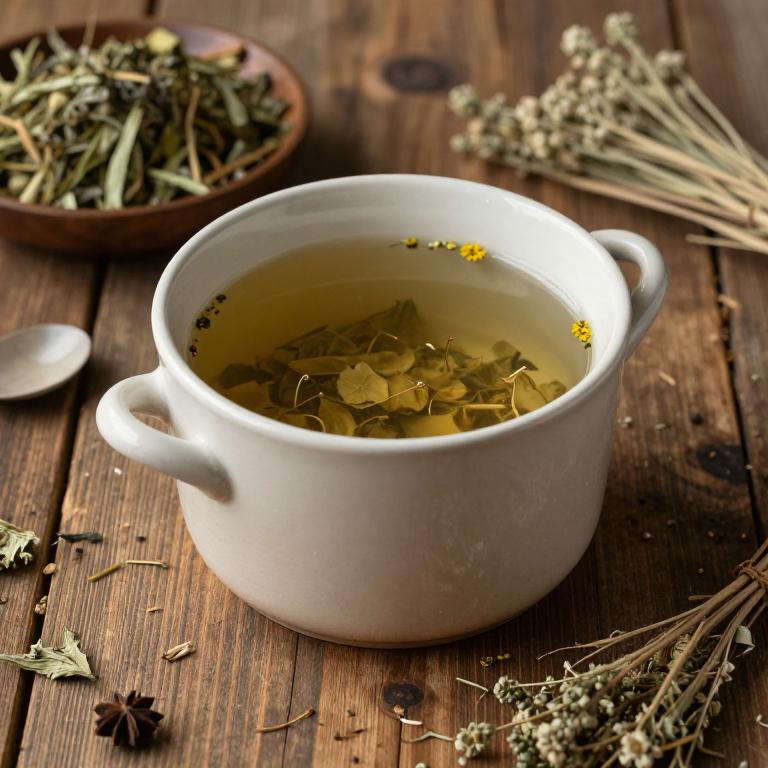
Piper methysticum, commonly known as kava, has been traditionally used in the Pacific Islands for its calming effects, and its herbal decoctions are increasingly being studied for their potential benefits in managing anxiety.
The active compounds, known as kavalactones, interact with the central nervous system to produce a sedative and anxiolytic effect without causing the respiratory depression associated with benzodiazepines. These decoctions are typically prepared by soaking the dried roots of the plant in water, allowing the compounds to dissolve and be consumed as a tea. While some research suggests that kava may help reduce symptoms of generalized anxiety disorder, it is important to note that its use should be approached with caution due to potential side effects and the risk of liver toxicity with long-term or high-dose use.
As a result, it is often recommended to consult with a healthcare professional before incorporating kava into an anxiety management regimen.
7. Chaste tree (Vitex agnus-castus)

Vitex agnus-castus, commonly known as chaste tree, has been traditionally used in herbal medicine for its potential calming effects on the nervous system.
Herbal decoctions made from Vitex agnus-castus are often prepared by simmering the dried berries in water, allowing the active compounds to infuse into the liquid. These decoctions are believed to support hormonal balance, which may indirectly alleviate symptoms of anxiety by reducing stress-related hormonal fluctuations. Research suggests that the plant contains compounds like aucubin and flavonoids, which may have mild anxiolytic properties.
While more clinical studies are needed, many individuals use Vitex agnus-castus decoctions as a complementary therapy for managing mild to moderate anxiety.
8. St. john's wort (Hypericum perforatum)

Hypericum perforatum, commonly known as St. John's Wort, has been traditionally used for its calming effects and is often prepared as a herbal decoction to alleviate symptoms of anxiety.
This herb contains bioactive compounds such as hypericin and hyperforin, which are believed to influence neurotransmitter levels in the brain, particularly serotonin, dopamine, and norepinephrine. When brewed into a decoction, the plant's active constituents are extracted through prolonged heating, enhancing its therapeutic potential. Herbal decoctions of Hypericum perforatum are often recommended for mild to moderate anxiety due to their mild sedative and antidepressant properties.
However, it is important to consult with a healthcare provider before use, as St. John's Wort can interact with various medications and may cause side effects in some individuals.
9. Echinacea (Echinacea purpurea)

Echinacea purpurea, commonly known as purple coneflower, is a popular herbal remedy that has been traditionally used for its immune-boosting properties.
Recent studies suggest that its herbal decoctions may also have potential in alleviating symptoms of anxiety by modulating the body's stress response. The active compounds in echinacea, such as alkamides, caffeic acid derivatives, and polysaccharides, are believed to influence neurotransmitter activity and reduce inflammation, which can contribute to anxiety. While more research is needed to fully understand its mechanisms, some clinical trials have shown promising results in reducing anxiety levels in individuals.
As a complementary therapy, echinacea purpurea herbal decoctions may offer a natural approach to managing anxiety when used alongside conventional treatments.
10. Lemon balm (Melissa officinalis)
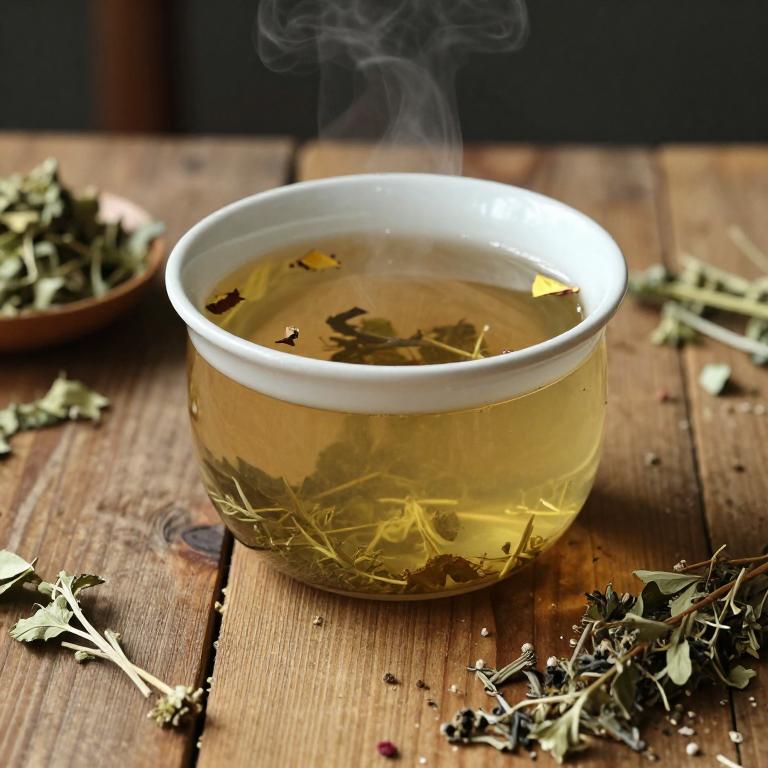
Melissa officinalis, commonly known as lemon balm, is a popular herbal remedy used for its calming effects, particularly in the management of anxiety.
Herbal decoctions of lemon balm are prepared by simmering the dried leaves in water, creating a soothing tea that can be consumed regularly. Studies suggest that the active compounds in lemon balm, such as rosmarinic acid and flavonoids, may help reduce symptoms of anxiety by modulating neurotransmitter activity in the brain. This herbal decoction is often recommended as a complementary therapy alongside conventional treatments for anxiety disorders.
Its mild, pleasant aroma and gentle action make it a favored choice for those seeking natural relief from stress and nervousness.